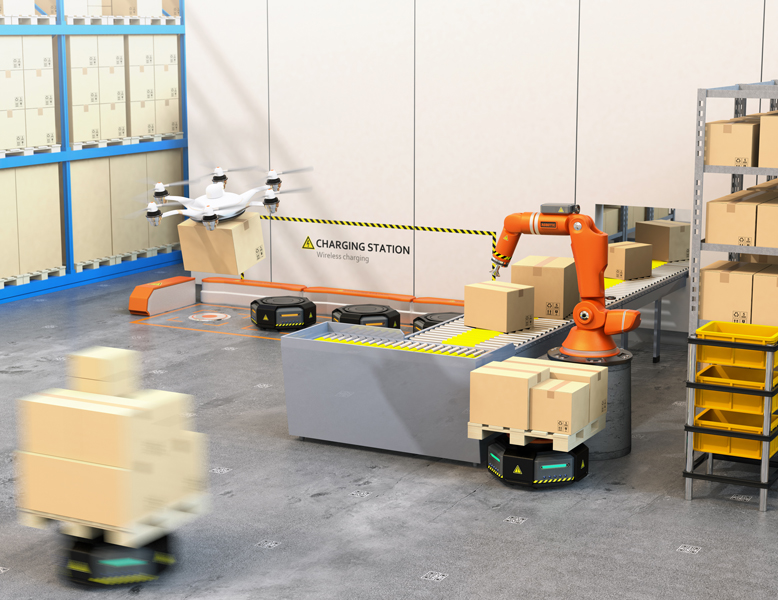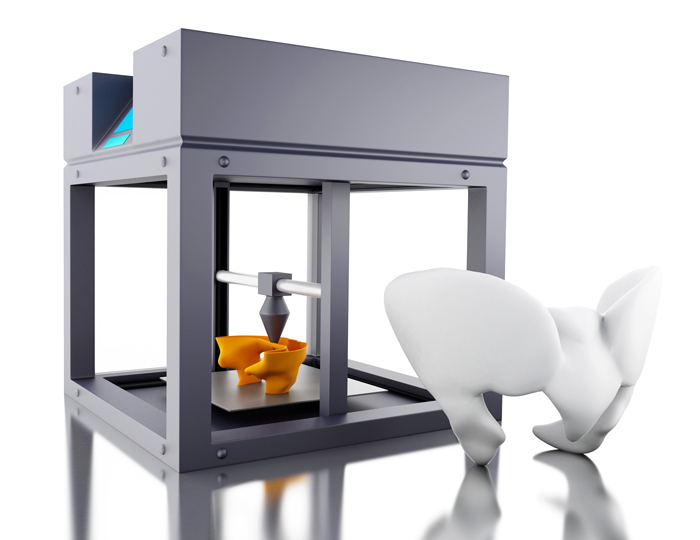If you have faced difficulty adapting to the many changes that have occurred because of the Digital Revolution, brace yourself — because the next revolution has already made itself felt in the global economy. The fourth industrial revolution, dubbed “Industry 4.0”, will see many of the technologies born in the previous revolution maturing into applications being used throughout manufacturing and supply chain systems and processes.

The use of drones and automation, artificial intelligence and machine learning, additive manufacturing (also known sometimes as 3D printing), augmented and virtual reality, smart sensors, big data and the Internet of Things (IoT) is being accelerated by COVID-19, says Associate Professor Goh Puay Guan of the National University of Singapore (NUS). The Academic Director of the University’s multi-disciplinary Master of Science (MSc) in Industry 4.0 programme observes that there is already increased automation in factories, as manufacturers grapple with the manpower issues arising from the coronavirus pandemic.
For example, the tracking technology that has existed in warehousing and logistics for years is now being integrated with smart space management systems and drone or robotic labourers.
Not only can inventory be traced, how and where they are stored is also being optimised through the application of technologies that can operate with minimal human input and also learn how to continually adapt and improve based on “experience” (i.e. data fed into the system, whether imported from an external source or generated through its own built-in monitoring capabilities).
Associate Professor Goh anticipates that automation will evolve to the level where a system is not only able to operate on its own, but also maintain itself for peak performance, with little to no human involvement. Sensors in labourer drones or robots will monitor their performance as well as wear and tear, reporting statistics to a central system that can schedule maintenance and repairs based on predictive analytics. The same system may be connected to 3D printers to create replacement parts, which can be installed on labourer machines by other drones and robots.

Because of this, Industry 4.0 talents will need to have some degree of technological savvy, particularly in programming. Beyond designing the systems, they need to be able to tell how the machines work and recognise any limitations that may be inherent in their hardware and software.
If that sounds to you suspiciously like engineers and digital experts are going to inherit the world in Industry 4.0, you may not be far from being right. However, such Industry 4.0 talents will have to grow beyond being simple technicians, to become cross-functional professionals who are able to integrate their technological smarts with an understanding of business and industrial processes.

Essentially, aspiring Industry 4.0 talents should aim to build a diverse array of competencies to best position themselves in a market where employers will be looking for far more than a narrowly focused technical proficiency. Already, Industry 4.0 positions are being advertised for jobs like Industrial User Experience/User Interface Designers, where candidates need to show how their technical prowess is enhanced by their understanding of business processes and human behaviour, as well as creative design.
The reality of Industry 4.0 is that the narrowly focused specialist will likely be less appreciated than a professional who is adept in a number of areas and who can adapt to change. Gone are the days of the automobile factory worker who could learn everything about assembling the headlights of a vehicle and then spend an entire career doing nothing else but that (with apologies to Henry Ford).
Some commentators have called Industry 4.0-type talents “T-shaped”, meaning they have a breadth of knowledge across a wide area, complemented by deep expertise in one specific discipline. In truth, they may need to be more π-shaped, having expertise in more than one discipline, while exhibiting functional competencies across a wide range of subjects.
Employers will also be keen to look for evidence that a potential hire has the practical experience to perform on the job. Beyond familiarity with how an industry works (pun not intended), Industry 4.0 talents will need to have a record of real-world achievements, whether this has been built up through industry-based projects, internships and attachments, or professional practice.
This may be old hat, you say, since employers have always valued prior work experience. However, the difference now is that employers will probably be evaluating a potential hire’s resume across several different aspects, including but not limited to their performance in a wider range of roles, ability to persuade and build consensus (as well as collaborate with others), potential for learning and growth, as well as capacity for “out-of-the-box” thinking, such as being able to gather resources from beyond conventional channels.

So, what kinds of jobs might be available to Industry 4.0 talents? While it is not easy predicting what kinds of jobs would exist ten, twenty or even thirty years from now, the kinds of technologies that appear to be the focus of Industry 4.0 can offer some clues as to the general direction in which the future of work is heading.
Apart from the aforementioned examples in logistics and perhaps manufacturing, there may also be opportunities for professionals involved in conceptual design and prototyping. This role, especially relevant in industries where there is a high risk or high cost associated with development, would make use of data and augmented or virtual reality to simulate how a particular process or product works (or does not work). A similar skillset would also be transferrable to quality assurance and process improvement specialists. Another job might be that of the Digital Solutions Architect, who would be responsible for figuring out how to design and implement Industry 4.0 technologies to integrate with key business and industrial processes.
At this point in time, it would probably not be incorrect to say that the future of work in Industry 4.0 lies in the creative minds of the talents who will be most active in this industrial revolution. In a way, the future of work in Industry 4.0 will be determined by the very talent who are seeking to make their mark in this new era. As they push the parameters of what is possible and expand the areas in which they make an impact, they are redefining job roles and responsibilities, creating new positions that may yet become the hallmarks of Industry 4.0.